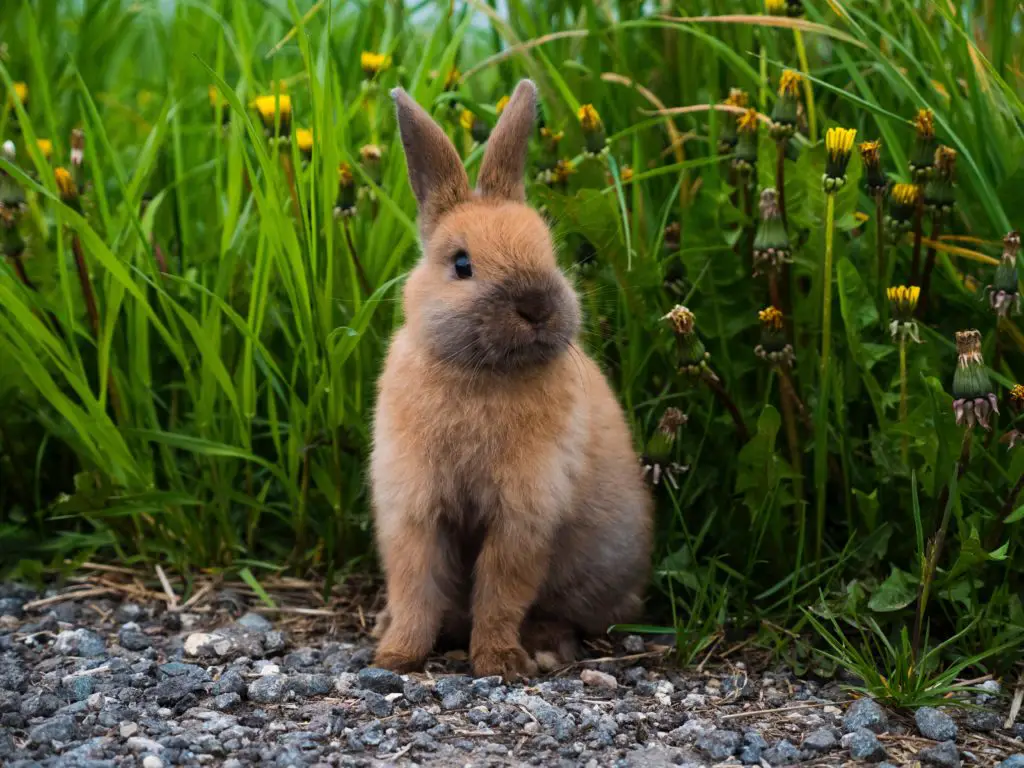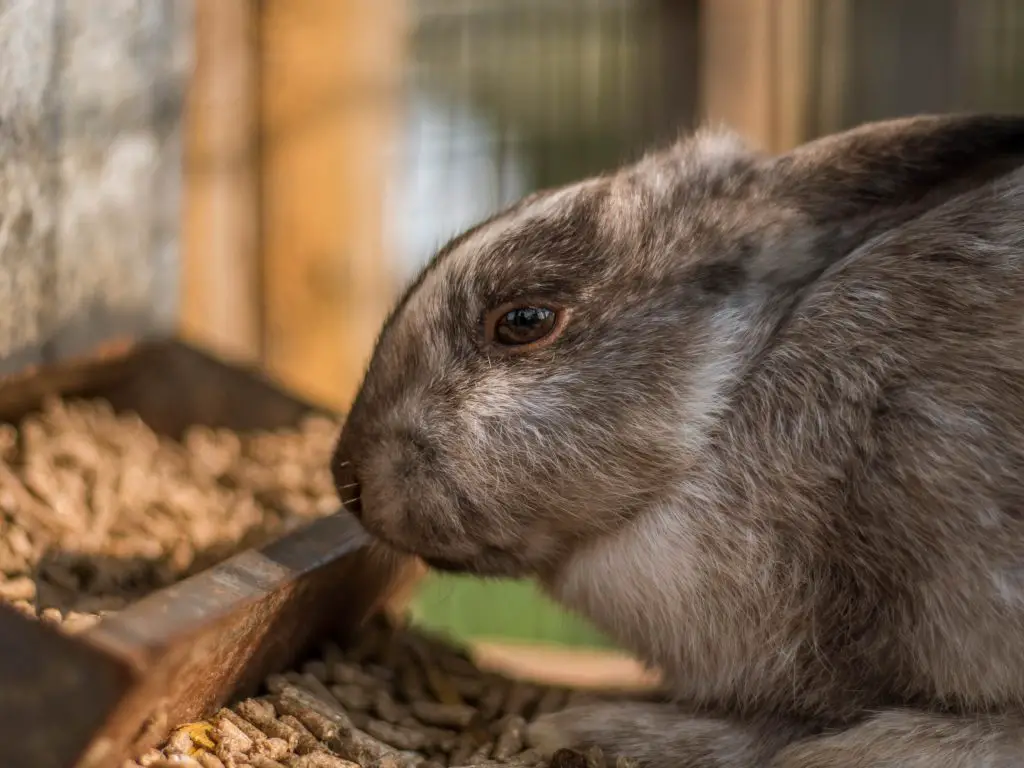For those of you who live in the countryside, it is not a rare thing to see a wild rabbit. And some of them can be really cute.
Is it illegal to keep a wild rabbit as a pet? In most US states, it is illegal to keep a wild rabbit as a pet unless you are carrying a state license or the rabbit is young and injured or in danger of dying. This is to protect the rabbit, as they are not born in captivity. On top of that, it is not safe to touch a wild rabbit since they can carry a lot of potentially dangerous diseases.
Today we will tell you all about the matter of keeping wild rabbits or bunnies as a pet.
Can you Catch a Wild Rabbit and Keep it as a Pet?
In the United States, it is widely considered illegal to keep wild animals as pets. Rabbits are usually included in this group. This is usually to protect the animal itself, as well as the capturer. There are many important reasons why these laws exist.
Unlike the animals purchased at a pet store, wild animals are not used to existing in confined spaces. When animals are put into situations of confinement, they are likely to become stressed.
This can have repercussions on the animal’s health. Escaping animals can hurt themselves or scare themselves with fatal repercussions. Rabbits are small and easily frightened, but their sharp teeth and claws can easily do damage.
It is not recommended to pick up a wild rabbit to keep, however, there are many available breeds that are raised for confinement and fit perfectly in a home.
Rabbits like the ones that come from certified pet stores are a safer option for the owner and the animal. Markets and illegal breeders should also be avoided when choosing a rabbit as a pet.
Is it Safe to Touch a Wild Rabbit?
It is not considered safe to touch a wild rabbit. Wild animals are both proven to carry and be susceptible to potentially fatal diseases. These can affect both the animal in question and even in extreme cases humans as well. When avoidable, it is never recommended to approach a wild animal.
One example of a dangerous disease that wild rabbits can carry is called Tularemia. This can be caught by direct exposure to a wild rabbit and is sometimes known as “rabbit fever”.
Each year, there are over 200 reported cases in the US alone, and there have been past outbreaks with higher numbers. When feeling unusual symptoms within 12 hours after touching a wild animal, it is recommended to visit a doctor.
Rabbits are also susceptible to receiving diseases from human beings. Recent evidence points to reverse zoonosis being more common than previously thought.
Wild animals like rabbits usually spend most of their lives in one area and are not exposed to many pathogens. When humans transmit these diseases, it is potentially fatal to the animal and can spread to entire colonies and species in extreme cases.
In what States is it Illegal to Keep a Wild Rabbit?
Staying up to date with regulations for each state is complicated, but generally, more than half of all US states have laws prohibiting or restricting the capture of wild rabbits and other animals.
These states include Alabama, Arkansas, California, Connecticut, Florida, Illinois, Iowa, Kansas, Kentucky, Maine, Maryland, Massachusetts, Minnesota, Montana, New Hampshire, New Jersey, New York, North Carolina, North Dakota, Ohio, Pennsylvania, Rhode Island, South Carolina, Tennessee, Vermont, Virginia, and Wisconsin.
Within some of these states, there are certain exceptions when the wild animal is kept for scientific or ecological purposes. It may be possible to receive a license to legally keep a wild rabbit.
All concerns are best addressed with the state’s department of ecological protection. As a rough rule, keeping a wild animal is illegal or not recommended.
What Should I Do if I Find a Baby Bunny?
The first thing that is recommended is to leave the baby rabbit precisely where it is. Usually, taking an animal out of its natural habitat is the least helpful way of assisting it.
Oftentimes, the mother will return to find it later on when the area is clear of predators. Interrupting this process could irreparably break the connection between the animals.
In case when the baby rabbit is in pain, injured, or sick, it is important to reach out to your local Wildlife Service or local vet. Trained experts have the best skillset and training for protecting and helping wild animals. Most of the time, if there is some way you can help, the expert will inform you and walk you through this process.
Can you Domesticate a Wild Rabbit?
It is not recommended to keep a wild rabbit as a pet under any circumstances. If you are in a situation when an animal needs immediate help, no protective services are available, and it is legal in the state, there are some ways to ensure that the animal will be safer to handle.
However, it should be noted that this is never recommended by protection specialists and experts, and is potentially dangerous for the animal and handler.
If your rabbit is caught in a cage, ensure that the area where it lives is safe, quiet, warm, and clean. The wild rabbits will be cautious of their environment and unnecessary stress could be potentially fatal. Ensure that you and other members of your family behave in a calm manner, slowly introducing yourself. If the caged rabbit feels you are a threat, they will panic.
It is never recommended to touch the rabbit yourself. This could lead to injury to you and the animal. Once your rabbit is calm and safe, you will have less trouble delivering it to a vet or wildlife rescue center. Keeping the rabbit as a pet is dangerous and often illegal.
Conclusion
Wild animals exist in specific environments and when exposed to humans, can both spread and receive potentially fatal diseases. Keeping an animal that you find in the wild is widely illegal, and often considered cruel, as the rabbit you come across outside is not used to living in confinement. There are many legal rabbits available for purchase from certified pet stores and breeders.

My name is Katie, and I have had different pets at home for as long as I can remember. While I can definitely say I love all animals in general, my heart belongs to cats and dogs. I know you are supposed to choose one or the other, but I could never really decide. I’ve also owned hamsters and fish when I was a kid, and they filled my childhood with very delightful memories.




